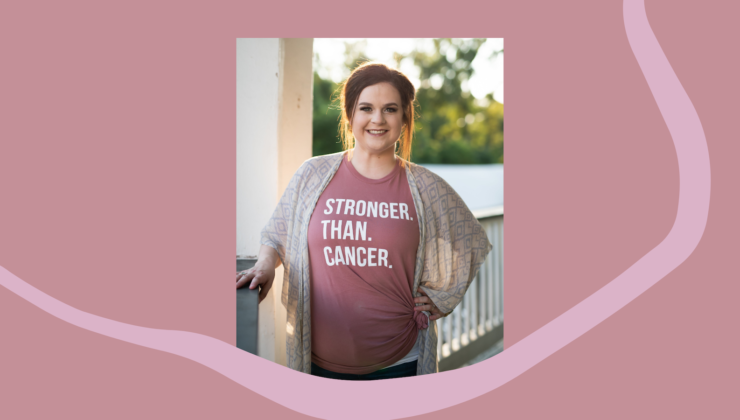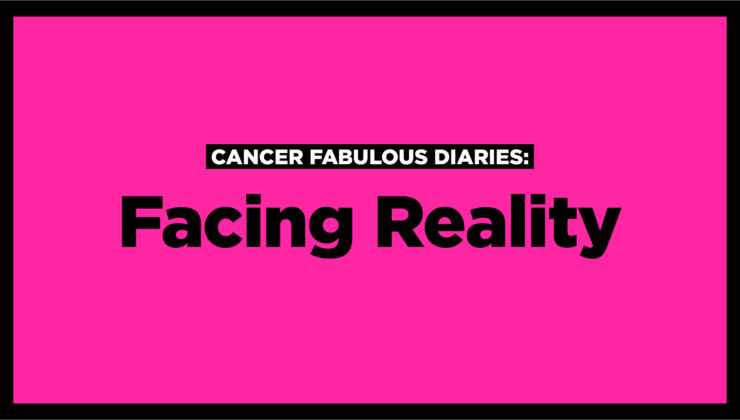The Psychosocial: Mental Health + Cancer Care

Tomorrow April 7th is World Health Day: A global health awareness day sponsored by The World Health Organization (WHO). This year’s focus is mental health. It is interesting to me that the World Health Organization has chosen this topic for their campaign this year. Surely there are other more important health crisis across the globe that trump (no pun intended) depression and mental health? Or are there?
According to a press release put out by WHO in March:
Depression is the leading cause of ill health and disability worldwide. According to the latest estimates from WHO, more than 300 million people are now living with depression, an increase of more than 18% between 2005 and 2015. Lack of support for people with mental disorders, coupled with a fear of stigma, prevent many from accessing the treatment they need to live healthy, productive lives.
They go on to say that they have identified strong links between depression and “non-communicable disorders and diseases” meaning that people with, let’s say… CANCER have a higher risk of depression.
This is a huge acknowledgement in the psychosocial oncology world and one that people diagnosed with cancer need to be aware of. I have heard one too many times from women with earlier stage breast cancer that once treatment is over they felt like they were hit with a title wave of sadness and grief. These two questions linger once the dust settles:
What the F*%k just happened?
Followed by….
Why don’t I feel relieved and happy to be finished with that part of my life?
No cancer equals all better
There is a clear expectation that if you look good you feel better. There is even a program based on this assumption. Just because someone doesn’t look ill or the poster image of a cancer patient doesn’t mean that they are completely healed. There are often lingering physical and emotional side-effects (laundry list here), post-treatment or adjuvant therapies like Tamoxifen and the biggie – recovering from trauma.
Note: Those with metastatic or stage 4 cancer often experience some form of depression or anxiety that requires treatment. They are in perpetual fear and anxiety as they are scanned every 3-4 months.
Many people have heard of Post Traumatic Stress Disorder (PTSD) when it comes to war or an act of violence, but often people don’t think of a cancer diagnosis as the cause of that kind of extreme stress. I am not sure if this belief comes from some sort of normalization of cancer in our society (the “everyone gets cancer” attitude) or maybe it is a belief that cancer is curable? A diagnosis can and does cause some people such extreme stress that 1/3 of people with cancer experience anxiety disorders or depression. That’s 32% of cancer patients according to a study published in The Journal of Clinical Oncology in 2013.
Let me break down some examples of cancer related trauma:
Being diagnosed with the disease
THOUGHT: I may die.
Diagnosis of an advanced cancer
THOUGHT: This disease is incurable and I will die from it.
Painful tests and treatments
THOUGHT: People are poking and prodding me. My body is not my own.
Pain from the cancer itself or other physical issues
THOUGHT: I feel pain and my body is never going to feel the same.
Test results
THOUGHT: The cancer has progressed and attacked other parts of my body.
Long hospital stays or treatments
THOUGHT: I am in a place with sick people. I am a sick person. I am a cancer patient.
A cancer recurrence or the potential for recurrence
THOUGHT: I might get cancer again and there is nothing I can do to stop it or control it. I am at the mercy of this disease.
Often people don’t know they are experiencing any type of cancer related mental health issue until they are there, and they can sometimes feel quite shocked and ashamed. There can be feelings of guilt – you should be feeling grateful or “lucky” that you made it through and your body is showing no evidence of disease. Or you may feel pressure to be happy and to move on from the experience but you can’t.
Being Prepared
I know I say it a lot but I am going to say it again…wait for it…Knowledge is power! Especially when you are blind-sided by feelings that seem antithetical to what you think you are supposed to feel. We hear this with post-partum depression a lot. Here you are – you just had a baby. The joy and happiness you are supposed to be feeling is clouded by anxiety, fear and sadness. No one prepared you for this. You always wanted to be a mother and you always heard this is supposed to be the happiest moment of your life. And then it’s not.
I had post-partum depression and I remember desperately wishing someone had told me or warned me this might happen. Wishing I had the heads up and was prepared so that it was less scary and frightening when it came so that I could be pro-active and put supports and measures in place just in case…and I did with my second child.
It is important that those diagnosed with cancer are prepared in a similar way. While referrals are often made to psychosocial oncology resources DURING treatment, patients are left holding the proverbial bag after treatment. Many are not aware these support services are accessible once their hospital treatment is over, and most initially feel like maybe they don’t need them. This can leave you scrambling in your darkest hour when you are most vulnerable.
As mental health continues to get more and more attention as a health epidemic, it is important that we start with educating our most vulnerable populations. Healthcare providers need to acknowledge risk factors pre-emptively before it becomes a crisis so that those who are at risk can feel empowered to speak up if and when the time comes. They can also arm patients with tools and resources to determine whether they need help and where to go to get it.
The Check-List
The following is a great list from Cancer.net. If you are experiencing the following, it’s time to follow up!
Mood-related symptoms
- Feeling down
- Feeling sad
- Feeling hopeless
- Feeling irritable
- Feeling numb
- Feeling worthless
Behavioral symptoms
- Loss of interest in activities that you previously enjoyed
- Frequent crying
- Withdrawal from friends or family
- Loss of motivation to do daily activities
Cognitive symptoms
- Decreased ability to concentrate
- Difficulty making decisions
- Memory problems
- Negative thoughts. In extreme situations, these may include thoughts that life is not worth living or thoughts of hurting yourself.
Physical symptoms
- Fatigue
- Appetite loss
- Insomnia, which is the inability to fall asleep and stay asleep
- Hypersomnia (excessive sleepiness)
- Sexual problems, such as decreased sexual desire

Note: The cognitive and physical symptoms listed above may be side effects of the cancer or cancer treatment. As a result, doctors place more emphasis on mood-related and behavior symptoms when diagnosing depression in a person with cancer.








